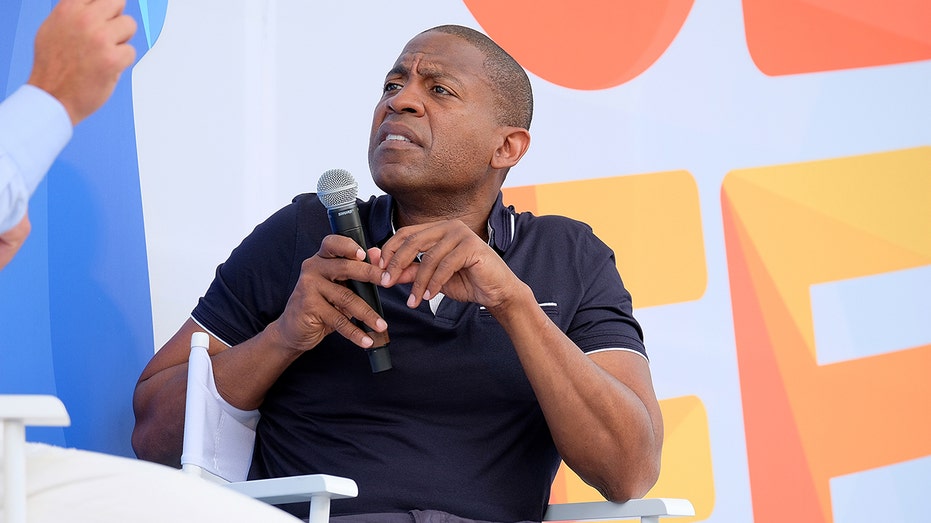Major Ozy Media advertisers suspend ad campaigns amid tumult
Ford, Goldman Sachs and Target pause advertising after New York Times raised questions about the digital-media startup’s practices
Fox Business Flash top headlines for September 30
Check out what's clicking on FoxBusiness.com.
Several major advertisers of embattled digital-media startup Ozy Media are putting their ad campaigns on hold in the wake of a New York Times article that raised questions about the company’s business practices.
Stocks In This Article:
Ford Motor Co. , Airbnb Inc., Goldman Sachs Group Inc. and Target Corp. are among the advertisers that have paused their campaigns, according to people familiar with the matter. Together, the paused ad campaigns—which include other companies — amount to about $5 million in revenue for Ozy, one of the people said.
"We are pausing our advertising while Ozy Media addresses their current business challenges," Ford said in a statement.
OZY MEDIA BOARD ANNOUNCES INVESTIGATION OF BUSINESS PRACTICES
The frozen ad campaigns are the latest wrinkle of the rapidly unfolding turmoil at the company. On Sunday the New York Times reported that Ozy Chief Operating Officer Samir Rao had impersonated an executive from Alphabet Inc.’s YouTube on a February fundraising call with Goldman Sachs. Ozy Chief Executive Carlos Watson in a statement Sunday said that Rao’s behavior on the call stemmed from mental-health issues, adding that Goldman Sachs wasn’t affected by the incident because it didn’t invest in Ozy.
The tumult at Ozy is also affecting its programming. Katty Kay, a high-profile Ozy recruit who was a correspondent and anchor for the BBC, said on Twitter Wednesday that she had resigned from Ozy this week.

Pictured: Ozy Media co-founder Carlos Watson. Several major advertisers of embattled digital-media startup Ozy Media are putting their ad campaigns on hold in the wake of a New York Times article that raised questions about the company’s business pra
On Thursday, Marc Lasry, an investor in Ozy and the co-owner of the Milwaukee Bucks National Basketball Association team, said he was stepping down from Ozy’s board, citing a lack of relevant experience.
"I believe that going forward Ozy requires experience in areas like crisis management and investigations, where I do not have particular expertise," Lasry said in the statement. "I remain an investor in the company and wish it the best going forward."
A spokeswoman for Ozy and Watson didn’t respond to requests for comment.
On Wednesday, Ozy’s board of directors said it hired law firm Paul, Weiss, Rifkind, Wharton and Garrison LLP to "conduct a review of the company’s business activities" and that Rao was asked to take a leave of absence.
2022 MIDTERM ELECTIONS AD SPENDING EXPECTED TO BREAK RECORDS
The fallout has also spread to Ozy’s investors. SV Angel surrendered its shares in Ozy, an unusual move for a venture-capital firm. Axios earlier reported SV Angel’s move. Axel Springer, another Ozy investor, has said it supported the board’s investigation into the company’s business practices.
The New York Times article also raised questions about discrepancies between Ozy’s stated audience size and its actual audience. Some ad buyers signaled disappointment that the issues surrounding possible faulty audience numbers weren’t discovered by other ad-tech outfits in the industry.
Watson said in his statement Sunday that the New York Times’ reporting on Ozy’s audience was "deeply flawed."
Ozy had become increasingly attractive to brands, as the advertising sector faced pressure to spend ad dollars with minority-owned and minority-led companies and with media that target diverse audiences, according to people familiar with the matter. Watson is Black.
GET FOX BUSINESS ON THE GO BY CLICKING HERE
Media mogul Byron Allen, who is Black, has been urging large U.S. corporations to spend more ad dollars on Black-owned media companies. In May, Allen filed a lawsuit against McDonald’s Corp. , accusing the fast-food giant of discriminating against Black-owned media companies. The lawsuit alleged that the restaurant chain had a "discriminatory contracting process." Allen Media Group/Entertainment Studios owns television stations and networks such as the Weather Channel. A McDonald’s spokesman said at the time that the company had taken steps to diversify its ad-spending practices.




















